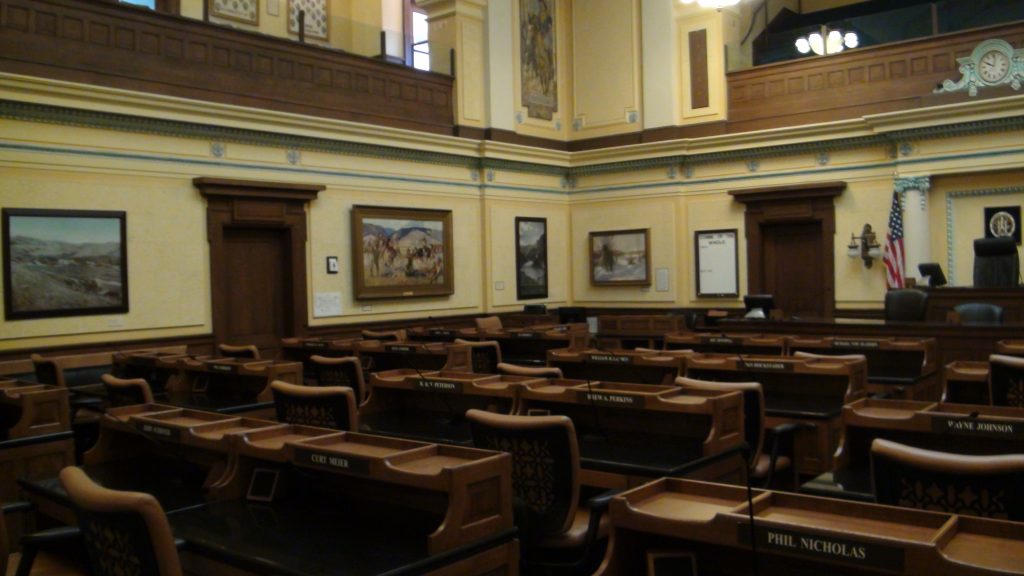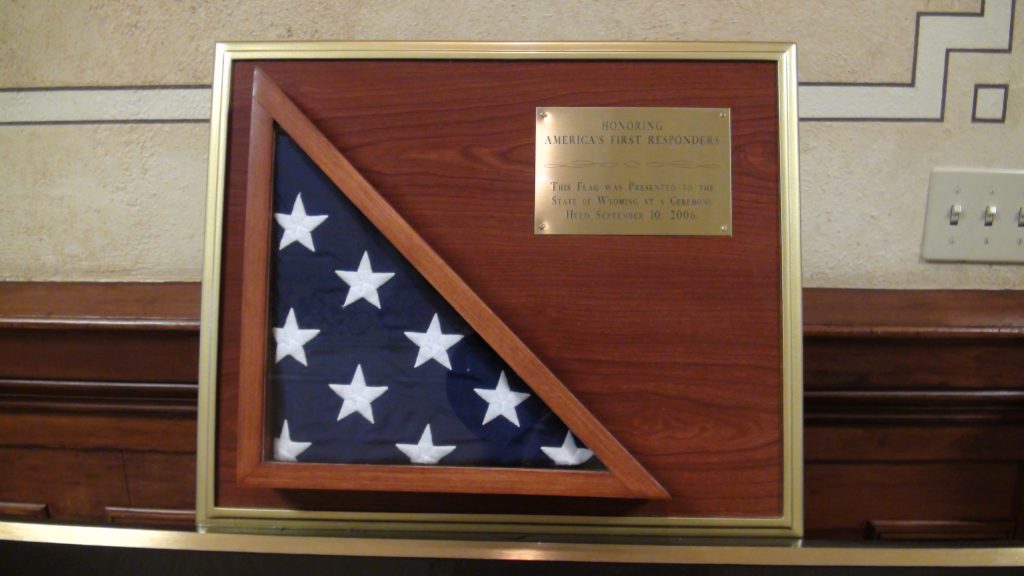House or Senate. Wyoming Capitol.
Tuesday, 11 June 2024
After three months we sailed in an Alexandrian ship whose figurehead was the Twin Brothers, which had wintered at the island. Acts 28:11
Note: You can listen to today’s commentary courtesy of our friends at “Bible in Ten” podcast. (Click Here to listen).
You can also read this commentary, scrolling with music, courtesy of our friends at “Discern the Bible” on YouTube. (Click Here to listen), or at Rumble (Click Here to listen).
The words are more literally translated, “And after three months, we went up in a ship having been wintered in the island, Alexandrian, figure-headed Dioscuri” (CG).
In the previous verse, Luke noted that the islanders honored Paul and him in many ways, noting that when they departed, they were provided things that were necessary. Now, Luke speaks of the actual departure, saying, “And after three months.”
This means that it was likely about early to mid-February. Some speculate it was as early as the month of January, others date it as late as March. The point is that they waited through the dangerous winter months while sailing was too hazardous.
The ship remained over the winter on the island until the time when it was safe to once again engage in commerce on the high seas. With the winter ending, the sailing would again be favorable. Therefore, Luke next notes, “we went up in a ship having been wintered in the island.”
Being a perfect participle, it means that the ship was wintered there, and it continued to winter there until the time that it could again go up to the high seas. This ship was heading in the right direction for the continued travel to Rome, and so it was employed for the next leg of the journey. Of this ship, Luke notes it was “Alexandrian, figure-headed Dioscuri.”
These words continue to show that Melita is, in fact, Malta. Malta would fall on the course from Alexandria to Italy, and so the identification of the ship as Alexandrian gives a good indication of the fact that the island was most likely Malta.
The word translated as figure-headed is parasémos. It comes from para, beside or by the side of, and séma, a sign or mark. Thus, a most literal translation would be “side-marked.” However, the intent is that of a figurehead.
Some ancient ships were side-marked with paintings, such as large eyes or other symbols like fighter jets display today. Others had carved images on them. Being the Dioscuri, it would seem likely these were carvings which then may have been highlighted with paint.
The word used to describe them is Dioskouroi, a word found only here in Scripture. It is derived from Dios which refers to Zeus, and the plural of kouros, boy. Thus, it means the two sons of Zeus and Leda, Castor and Pollux. They were the patrons of sailors.
Due to the nature of the word, the translation can be literal, Dioscuri, or any suitable translation that conveys the message, such as “twin gods,” “twin brothers,” “Castor and Pollux,” “the Castors,” “the sign of the Twins,” “the Heavenly Twins,” etc.
Each gives an acceptable description intended to convey what Luke meant with the single word Dioskouroi. Of these guardian deities of sailors, Ellicott notes –
“In Greek mythology, Zeus had rewarded their brotherly devotion by placing them among the stars as the Gemini, which were connected with the month of May in the signs of the Zodiac, and Poseidon (= Neptune) had given them power over the winds and waves that they might assist the shipwrecked. So in the Helena of Euripides they appear, in 1550–60, as promising a fair wind and a safe voyage. The figure-heads of the Greek and Roman ships were commonly placed both at the prow and the stern.”
What is unusual is that Luke has never noted the figurehead on any ship that they had sailed on in his previous accounts. And the number of ships would not have been small. For example, he notes that sometimes they changed ships while in a harbor, taking another to get to their intended destination. This would have been quite common, changing ships from one harbor to the next.
Despite this, the account now – when leaving Malta – is the only time a figurehead is described. Of this, Benson says, “And yet, in a ship having such an idolatrous image, Paul did not refuse to sail, considering it as being only the name of the ship.”
Paul was a prisoner being conducted to Rome, he had no choice in what ship he traveled, and it is certain that the majority, if not all, of the ships they had traveled on had figureheads. Therefore, it is irrelevant that it was an idolatrous image.
What seems likely is that Luke included this to show a contrast to what had occurred upon their arrival. As that ship certainly had a figurehead, and maybe even the same one as the ship they were now departing on (being the patron of sailors), such figureheads were irrelevant in providing protection to a ship.
The Lord had been with Paul, He had assured the safety of every person on the ship, He had followed through with that, and He had demonstrated His hand upon Paul when the viper bit him. He also continued to be with Paul as he laid hands upon the sick and healed them. And more, this journey to Rome is the fulfillment of the words of the Lord that Paul would bear witness at Rome (Acts 23:11).
Luke has, therefore, set a contrast to the effective workings of the Lord and the ineffective protection of false idols made by man’s hands.
Life application: Despite Benson’s comments not fitting the narrative, his words are correct that the images on the ship were idolatrous. People were putting their trust in something that is a part of creation rather than in the Creator.
The Bible mentions several constellations, acknowledging that they are as real as the planets. If God uses the constellations to tell a story, that is not the same thing as God allowing those things to be objects of worship or luck.
In Judges 9, Jotham uses the trees as an allegory. The Lord does this elsewhere as well. However, this doesn’t mean that the trees have any power in and of themselves. They are simply used to convey a story or prophecy. We must be careful to distinguish between such things.
Also, it would be ludicrous to refuse to travel on a ship or airplane that has figureheads on it. Paul addresses such notions when dealing with foods sacrificed to idols in 1 Corinthians. Those things are nothing. As long as we remember that and have our hearts and minds directed to the Lord, we don’t need to worry about what the world is doing.
Our hope is not in a carving, a painting, or a constellation. Rather, our hope is in the One who created all things and who has revealed Himself in Scripture and in the Person of Jesus Christ our Lord.
Heavenly Father, we know that an idol is nothing at all. It cannot help and it cannot harm. When our eyes look to the stars and constellations, we see Your hand of creation, not deities that can help us with our problems or direct our futures. May we always remember these things and focus our hearts and attention on You alone. Amen.





